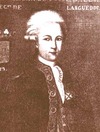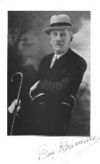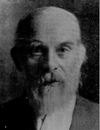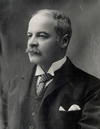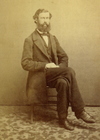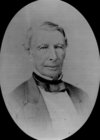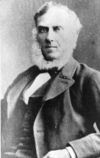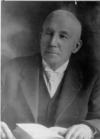Gordon, who had been serving in Prince Edward Island since 1806. In 1808 Keir formally offered himself for the Secession congregation in Halifax, and in September he sailed with his bride for Nova Scotia
members of Prince Edward Island’s House of Assembly (Henry and George Beer).
Some personal details can be gleaned from Bremner’s histories. His
tenant farmer from Tryon, was first elected to the Prince Edward Island House of Assembly in 1859, and he served continuously until his defeat at the polls in 1876. During three of these years, 1874–76, he
him in one of the major issues of post-confederation Prince Edward Island politics, that of demanding federal compliance with the promise made in 1873 to provide continuous communication with the
OULTON, ROBERT TRENHOLM, farmer and co-founder of the silver fox industry in Prince Edward Island; b. c. 1835 in Mount
*, an established newspaperman. At the age of 26 he began his own newspaper, the Colonial Herald, and Prince Edward Island Advertiser, with the assistance of John S. Bremnar; the first issue
1873. Pioneer (Summerside), 22, 29 Sept. 1880; 17 Aug., 5 Oct. 1881; 6 Sept. 1882; 29 June 1935. Prince Edward Island Agriculturist
Charlottetown.
Arthur Peters was born into what passed for an aristocracy in 19th-century Prince Edward Island. As his obituary in the
in Charlottetown, he became private secretary to the lieutenant governor of Prince Edward Island, Charles Douglass Smith*. The next
to Prince Edward Island in 1809 and was reunited with his wife and four children two years later. Following his arrival he joined Edmund Waters in the general merchandising and shipping business in
(Prince Edward) Island; his mother’s sister was the widow of John MacDonald* of Glenaladale, who in 1772 had founded its first
Prince Edward Island in 1828 to manage the family’s extensive landholdings and, failing to garner enough income from his properties, became a businessman in Charlottetown and later headmaster of Central
in Halifax and was called to the bars of Nova Scotia and Prince Edward Island in 1819. He then took up residence in Charlottetown and pursued an active career as a lawyer, land agent, and politician
.
Lemuel Owen’s grandfather Arthur Owen was one of a small but influential group of immigrants to St John’s (Prince Edward) Island from the West Country of England. These men, who included the founders
.
Mark Butcher, a member of a family of cabinetmakers, immigrated with his parents to Prince Edward Island in 1829. In February 1835 he announced the opening of a workshop in Charlottetown to
Island.
Theophilus Desbrisay’s appointment as governor’s chaplain for St John’s (Prince Edward) Island was obtained for him in 1774 by his father
Fraser*, from a group of Scottish Presbyterians who had established “flourishing settlements” in the southeast corner of Prince Edward Island. These predominantly Gaelic-speaking communities were
METHERALL, FRANCIS, Bible Christian minister, founder of the Bible Christian mission in Prince Edward Island; b
.
It is not known when Thomas Irwin emigrated from his native Ireland to Prince Edward Island, or how he earned his living there before receiving licences to teach (1830) and to practise surveying (1835
.
John H. Bell’s father emigrated from Scotland in 1820 and began farming in the Cape Traverse area of Prince Edward Island. John attended local schools, Prince of Wales College in Charlottetown, and




